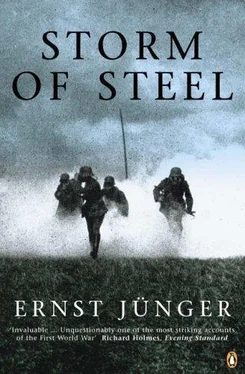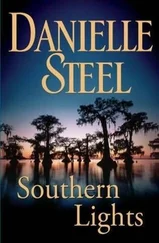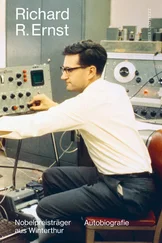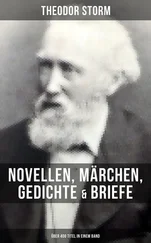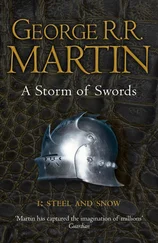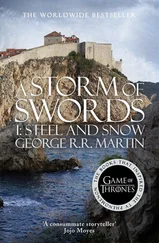The other is that, unlike any of the other World War I books I’ve read, Storm of Steel has found its way into natural epic form. The inspiration of most of the English books is lyrical or dramatic; they work with one-off contrasts and ironies; they fear repetition or excess of detail. They begin as they mean to go on, with misfortunes and reverses: Graves shelled by his own artillery; Blunden’s grenade instructor blowing himself up with a bad grenade; Sassoon breaking a leg while riding before he ever gets to France. There is something bleakly – bracingly – comic about all three. At the most, they are Entwicklungsromane, narratives of the accrual of experience and the development of character. (There is nothing comic about Junger whatsoever, and his few instances of rough humour do little to further German claims in that department.) Storm of Steel leaves all that behind: otherwise we should have had the escape to Algeria and much more. Similarly the twos and threes and fives of poetic and dramatic form are left behind: who can count the number of scenes and episodes in Storm of Steel? Junger’s first encounter with the war, after a few pages approaching it, is when the shell comes down in the gateway, and causes sudden carnage. There’s nothing subversive about it, and nothing personal. It’s not a book about survival, and I’ve never had that sense of that revelling (mistakenly) in one’s own indestructibility that the political critics of Jtinger say is a hallmark of Fascist writing. (It is there in other books of his.) There’s a later, hyper-Nietzschean aphorism of Junger’s that goes: ‘What doesn’t kill me makes me stronger; and what kills me makes me incredibly strong.’
In the strangest way, Storm of Steel isn’t really a personal book at all – it’s about the war. In his World War II Diaries, there is this very suggestive idea: ‘War isn’t like a cake that the two sides divide up between them to the last crumb; there is always a piece left. That’s the piece for the gods, and it remains outside the argument, and it elevates the fighting from sheer brutality and demonic violence. Homer knew and respected it.’ Storm of Steel is about all of war, including that Olympians’ share. Even the form of warfare in World War I – a mutual or reciprocal siege -seems somehow suitable for epic. As in The Iliad, it can be difficult to separate the momentous and the routine; that too is perhaps in the nature of war. Thomas Nevin notes: ‘Marx had asked: “Is Achilles possible with gunpowder and lead?” Junger had answered: “That was my problem.”’ Sometimes the progress seems slow and a little lumbering (Junger’s time as an observation officer I remember as a particularly quiet phase of the book), at other times the horror and excitement come pell-mell. There is repetition, there is detail of every sort, there is an effort to integrate war into nature, a military pastoral, the alternation of day and night, rain and shine, the wheel of the seasons: ‘Each spring marked the beginning of a new year’s fighting; intimations of a big offensive were as much part of the season as primroses and pussy-willows’ (p. 141). All this is epic and celebratory. War and time and being are compounded into one great narcotic experience. (I could never understand, unless it was for doctrinal political reasons, why Sartre, asked about Junger, said merely: ‘I hate him.’) At the same time, it’s possible to read Storm of Steel without falling in thrall to war; one may even feel strengthened in one’s pacifist convictions. It’s a fair book, not a tract, and over the years and revisions I suspect it’s become rather fairer. It has purpose – many purposes, even – but it’s not designing or conniving. Much of this is due to the way it ends. There is real weariness – the weariness, one might even conjecture, of a much older man – and a profoundly elegiac feeling in its last chapters. This is not a mendacious or literarily contrived withdrawal – Junger is still attending to what’s in front of him, and around him – but it is unexpected and, I think, deeply moving. It’s the epic giving way to the tragic:
The nights brought heavy bombardments like swift, devastating summer thunderstorms. I would lie on my bunk on a mattress of fresh grass, and listen, with a strange and quite unjustified feeling of security, to the explosions all around that sent the sand trickling out of the walls. Or I would walk out to the fire-step to take in the mournful nocturnal scene, and the strange contrast between its heaviness and the fiery spectacle whose dance-floor it was.
At such moments, there crept over me a mood I hadn’t known before. A profound reorientation, a reaction to so much time spent so intensely, on the edge. The seasons followed one another, it was winter and then it was summer again, but it was still war. I felt I had got tired, and used to the aspect of war, but it was from this familiarity that I observed what was in front of me in a new and subdued light. Things were less dazzlingly distinct. And I felt that the purpose with which I had gone out to fight had been used up, and no longer held. The war posed new, deeper puzzles. It was a strange time altogether, (p. 260).
It is still the Junger repertoire, the contemplation, the casual fearlessness, the observation of huge and tiny things, the melancholy, the idea of the war-as-nature, the big metaphors, but with a new quality of introspection. (Though this too has a hard edge, it’s momentary and continent and underplayed.) It’s a moment of war-weariness, of taedium belli, surprising in such a one. For once, Junger seems less like Achilles – sometimes he seems like Ajax – than like Hector. Influenza, enemy propaganda, bad food, silly accidents and foolish orders have all taken their toll, and twenty pages later, in the chapter called ‘My Last Assault’, there is what seems to me an utterly Homeric moment:
A figure in brown corduroy strode with equanimity across this fire-swept piece of terrain, and shook me by the hand. Kius and Boje, Captain Junker and Schaper, Schrader, Schlager, Heins, Findeisen, Hohlemann and Hoppenrath stood behind a hedge raked with lead and iron and talked through the attack. On many a day of wrath we had fought on one and the same battlefield, and today once more the sun, now low in the Western sky, was to gild the blood of all or nearly all.
It was our last storm. How many times over the last few years we had advanced into the setting sun in a similar frame of mind! Les Eparges, Guillemont, St-Pierre-Vaast, Langemarck, Passchendaele, Moeuvres, Vraucourt, Mory! Another gory carnival beckoned, (pp. 279-80).
Is this not majestic and surprising and beyond all contrivance in its sadness?
This is the reward of epic. A skimpier, less focused, less excessive, less varied and venturesome book would never have mustered the layerings of repetition and endurance sufficient to produce this sudden deepening, this sudden qualitative change. The summaries (that ‘hedge raked with lead and iron’) might have been news, the heightening of the tone pretentious, the hint of alienation coquettish or already threadbare, and, in the two Homeric catalogues, the names might have been those of ‘characters’, and the sites of the battles pretty indistinguishable. Can you tell this, can you write about this? Women queueing outside Stalin’s prisons in the hope of seeing their sons and husbands asked the Russian poet Anna Akhmatova, there to see her own son, and, for whatever reason, she could. Ernst Junger, for whatever reason, over decades, learned to tell his story of World War I.
Michael Hofmann February 2003 Gainesville, Florida
In the Chalk Trenches of Champagne
The train stopped at Bazancourt, a small town in Champagne, and we got out. Full of awe and incredulity, we listened to the slow grinding pulse of the front, a rhythm we were to become mightily familiar with over the years. The white ball of a shrapnel shell melted far off, suffusing the grey December sky. The breath of battle blew across to us, and we shuddered. Did we sense that almost all of us – some sooner, some later – were to be consumed by it, on days when the dark grumbling yonder would crash over our heads like an incessant thunder?
Читать дальше
